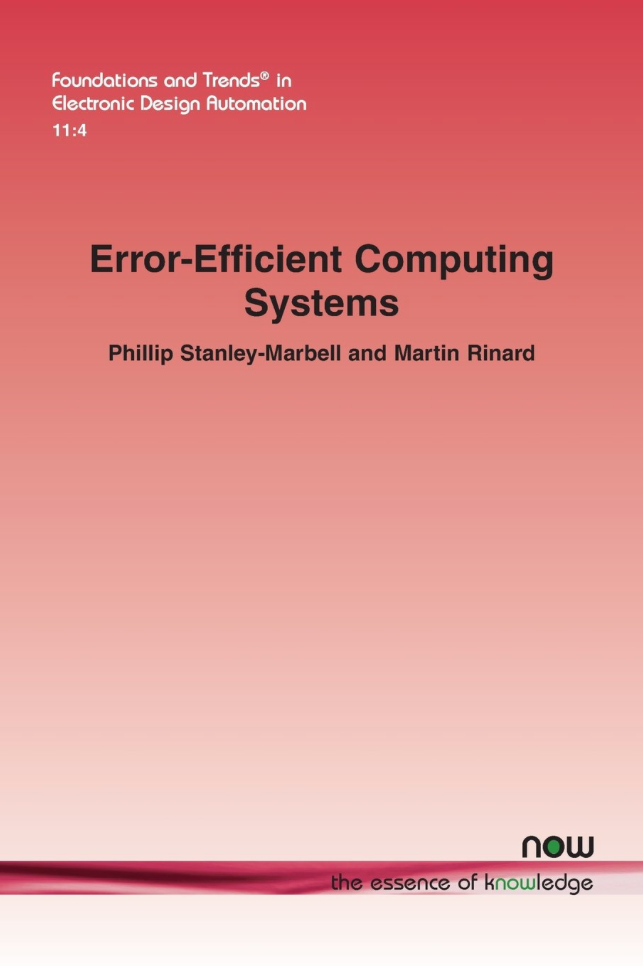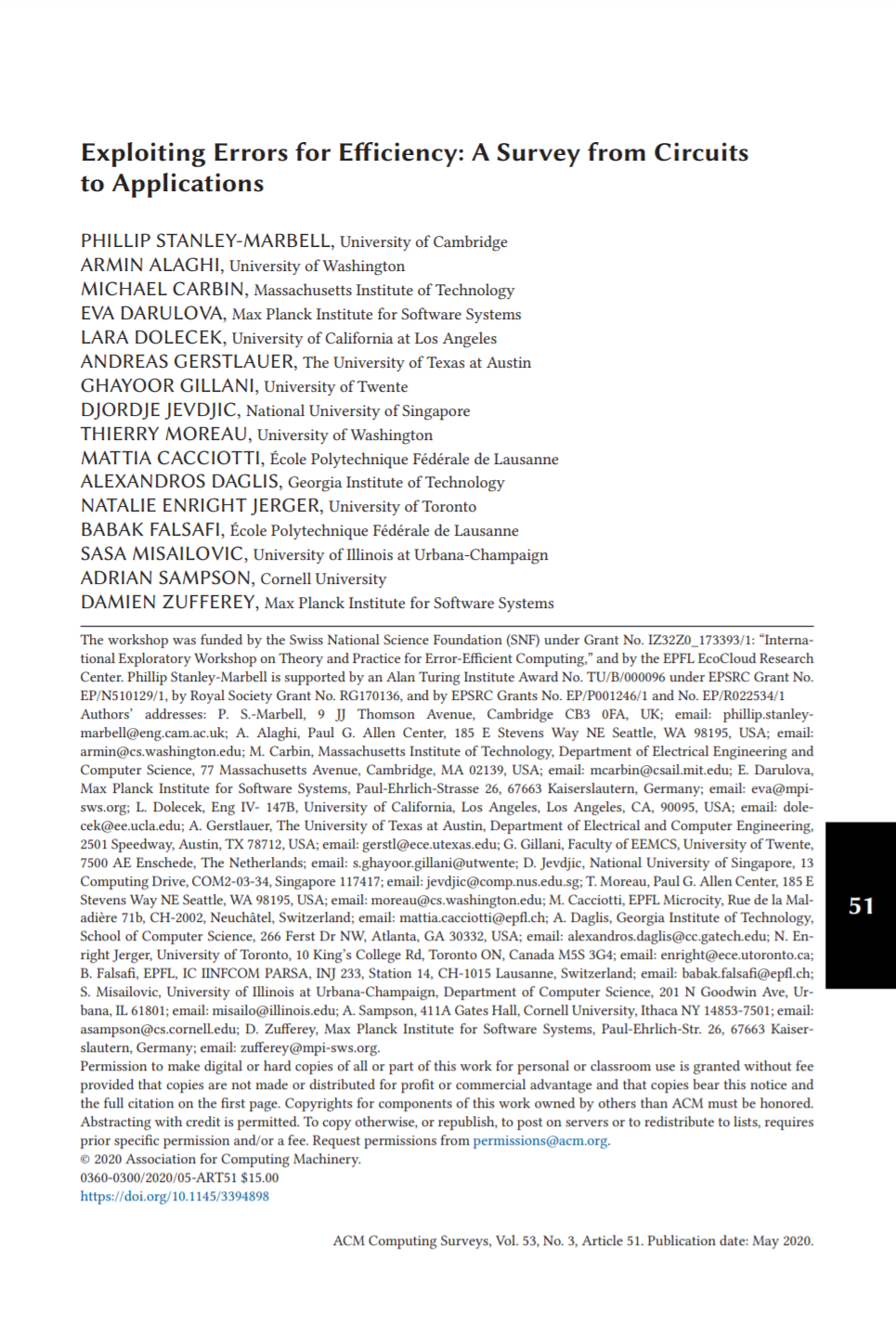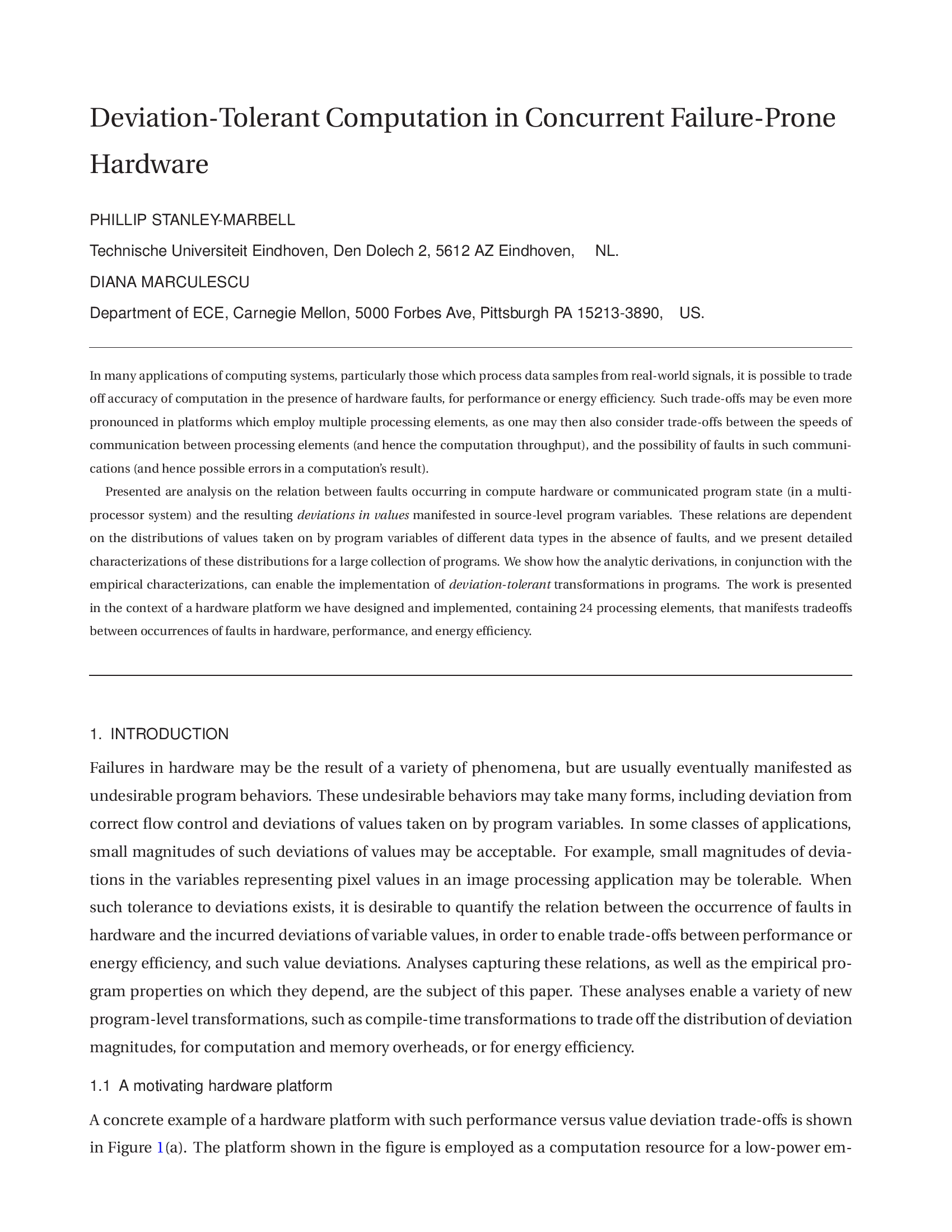Error-Efficient Computing Systems


Abstract
This survey explores the theory and practice of techniques to make computingsystems faster or more energy-efficient by allowing them to make controllederrors. In the same way that systems which only use as much energy as necessaryare referred to as being energy-efficient, you can think of the class ofsystems addressed by this survey as being error-efficient: They only preventas many errors as they need to. The definition of what constitutes an errorvaries across the parts of a system. And the errors which are acceptable dependon the application at hand.In computing systems, making errors, when behaving correctly would betoo expensive, can conserve resources. The resources conserved may be time:By making some errors, systems may be faster. The resource may also beenergy: A system may use less power from its batteries or from the electricalgrid by only avoiding certain errors while tolerating benign errors that areassociated with reduced power consumption. The resource in question may bean even more abstract quantity such as consistency of ordering of the outputsof a system.This survey is for anyone interested in an end-to-end view of one set oftechniques that address the theory and practice of making computing systemsmore efficient by trading errors for improved efficiency.
Cite as:
Phillip Stanley-Marbell and Martin Rinard. 2017. Error-Efficient Computing Systems. Found. Trends Electron. Des. Autom. 11, 4 (18 12 2017), 362–461. DOI:https://doi.org/10.1561/1000000049
Bibtex:
@article{10.1561/1000000049,
author = {Stanley-Marbell, Phillip and Rinard, Martin},
title = {Error-Efficient Computing Systems},
year = {2017},
issue_date = {18 12 2017},
publisher = {Now Publishers Inc.},
address = {Hanover, MA, USA},
volume = {11},
number = {4},
issn = {1551-3939},
url = {https://doi.org/10.1561/1000000049},
doi = {10.1561/1000000049},
journal = {Found. Trends Electron. Des. Autom.},
month = dec,
pages = {362–461},
numpages = {100}
}




